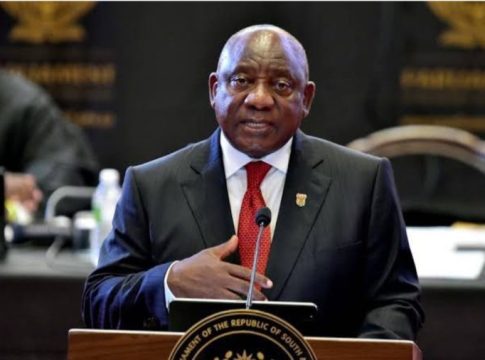In a landmark shift in South African politics, President Cyril Ramaphosa has successfully been re-elected for a second term, following a coalition agreement between the African National Congress (ANC) and the Democratic Alliance (DA). Garnering 283 votes, Ramaphosa comfortably surpassed his opponent, Julius Malema of the Economic Freedom Fighters (EFF), who received 44 votes.
This coalition marks a significant point in South African history as it is the first instance since the end of apartheid that the ANC has not held a parliamentary majority on its own, with its vote share dropping to 40.2%. Conversely, the DA secured almost 22% of the vote and, through its agreement with the ANC, has positioned itself to secure key parliamentary roles in the new government arrangement.
Key to this coalition’s agenda are policies that resonate with larger businesses and international investors, highlighting a focus on renewable energy initiatives and the adoption of a merit-based approach to civil service appointments. The coalition has also attracted the support of other smaller parties, including the Inkatha Freedom Party and the Patriotic Alliance, further extending its base of governance.
The ANC’s decline in parliamentary dominance can largely be attributed to defections to the newly formed uMkhonto weSizwe (MK) party, which captured 14.6% of the electorate’s support. On the other side of the political spectrum, the EFF has firmly rejected the newly formed coalition, continuing its stance of opposition against the DA.
As President Ramaphosa embarks on his second term, his administration’s inclusive approach is geared towards stabilizing the governance landscape in South Africa. This period of transition comes as continued negotiations over policies and cabinet positions are set to define the trajectory of the nation’s future governance and policy implementation.




